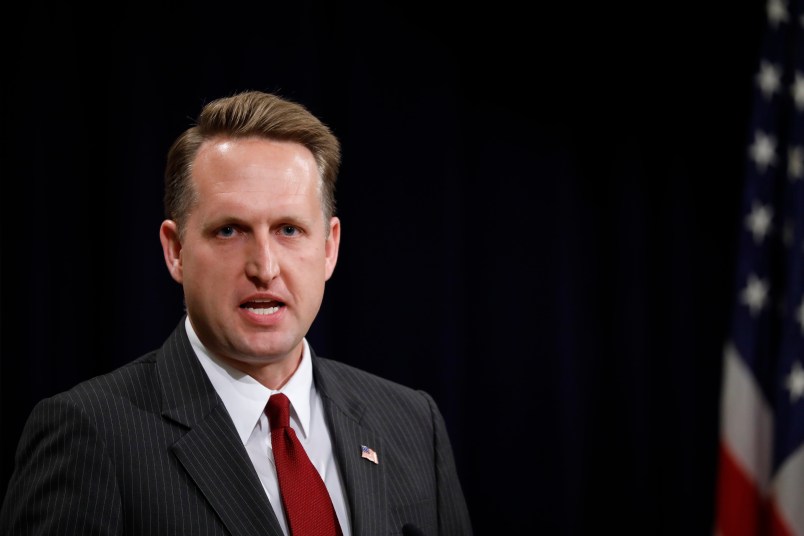The Justice Department came out guns blazing in a court filing Monday evening denying many of the claims of new evidence and alleged false testimony in the census citizenship case.
The Justice Department called the ACLU’s allegations “meritless” and “inflammatory,” while comparing the ACLU’s arguments to the “conjuring ” of a “conspiracy theory involving a deceased political operative that essentially hinges on wordplay.”
“The [ACLU’s] motion borders on frivolous, and appears to be an attempt to reopen the evidence in this already-closed case and to drag this Court into Plaintiffs’ eleventh-hour campaign to improperly derail the Supreme Court’s resolution of the government’s appeal,” the Department said. “The Court should not countenance Plaintiffs’ tactics.”
The Justice Department denied that its December 2017 formal request that a citizenship question be added to the census was at all connected to a 2015 study by a Republican consultant who said such a question could facilitate a redistricting overhaul that would boost the GOP’s electoral advantages.
The Justice Department said any insinuation of similarities between the 2017 request, written by DOJ official John Gore, and the consultant’s study were false.
The ACLU has accused Gore and another person involved in the push to add the question of lying about their testimony.
The ACLU’s argument about Gore’s alleged lack of candor did not hinge on whether he based the formal request on the 2015 study, but rather whether he had received a draft of the request that included a paragraph ghostwritten by the now-deceased consultant, Tom Hofeller. Gore admitted in a congressional interview earlier this year to receiving the draft from Mark Neuman, an outside advisor on census issues and the other witness who has been accused of lying by the ACLU.
In its court filing Monday, the Justice Department blamed the challengers in the case for not asking the specific questions of Gore in his deposition that would have produced that answer. The Department also pointed out, in what was perhaps the strongest argument in its filing, that it produced the draft for the challengers in discovery in October with the representation that it was among the “materials collected from” Gore. The ACLU, in its initial filing making the allegations, had conceded that the draft had been produced in discovery. But the group claimed that it had been produced by Neuman and that “neither Neuman nor Gore had disclosed that Neuman gave this draft to Gore.”
Furthermore, the Department argued, the request written by Gore “bears no resemblance to anything in the Neuman Letter, including the nonsensical paragraph allegedly written by Hofeller.”
A hearing in the dispute has already been scheduled in front of the trial court judge for Wednesday. It is not clear whether the challengers will seek to try to put the new evidence in front of the Supreme Court — which heard the case in April — and what procedural mechanism would be available for them to do so.
The challengers were able to connect Hofeller to the draft that Neuman provided Gore because of files on his back-up hard drive that had been found by his estranged daughter after his death last year. The Hofeller’s files were provided for a separate partisan gerrymander case in North Carolina, where the challengers were represented by the same law firm as those in the Census case.
Read the filing as well as the relevant exhibits below:






